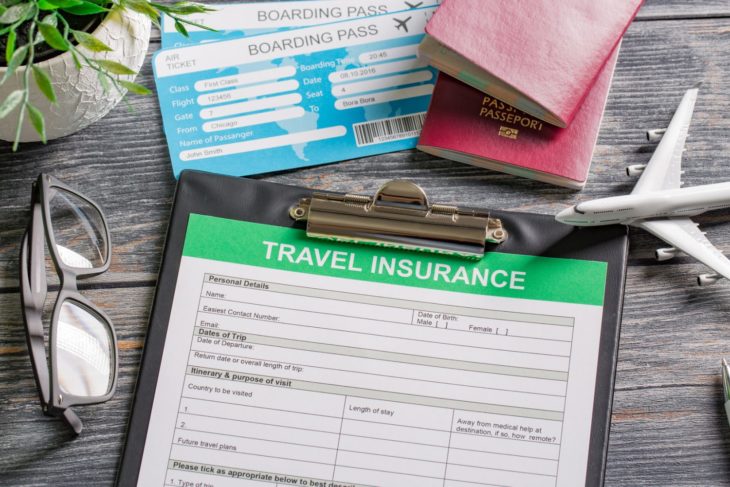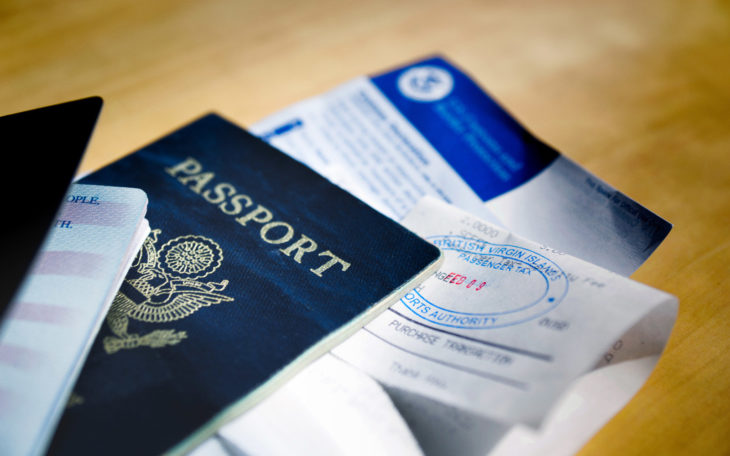I am essentially living my dream—seven months ago, I packed up my life in New York and decided to move to Paris for a year. I get a lot of “How did you do it?” questions from people with similar aspirations, all of whom seem to think that moving abroad was a whimsical decision I made in a week. Not the case—planning such an endeavor took months, not just to sort out logistics, but also to save money. Lots of it.
Thinking about ex-pat life? Here are some tips to save and manage your money to make it possible, plus things to consider once you make the jump.
Contents
Make sure you have lots of money – and time

Source: usnews
First, the harsh reality: you will need twice the amount of money you think you need, and twice the amount of time to get it all together (unless you’re super lucky and have landed yourself some cushy job overseas where your company is taking care of your relocation costs). Taking on this type of adventure is a great thing to do when you’re young, because chances are you won’t be able to contribute to any long-term savings plans while you’re living your dream. That might be a downside, but the upside of being young is being able to live on the cheap. It depends on how expensive your city of choice is, but a good goal would be to amass at least $10,000 before you go.
The easiest way to reach such a goal is to stay in your job, but drastically cut down on your expenses. Some ways I did this:
- Live rent-free or move to the boonies. I moved in with my parents for six months, and just barely survived. But now I’m miles away, so it evens out. This is really the most important money-saving step you can take.
- Strip down your life to the bare minimum. This means downgrading your phone plan, living without cable, and canceling your gym membership.
- Stop one-off purchases at H&M.
- Never, ever take a cab.
- Reduce your social activity. You’re leaving anyhow, right? This is not to say don’t go out at all, but maybe skip dinner with the girls and meet them after for a drink. Opt for beer and wine instead of a cocktail. Socialize more at your own home or friends’ houses. Have a drink at home before you go out, so you buy fewer.
- Of course, if you can, find more work—freelance gigs, weekend jobs—to add to your income.
Consider the financial situation of your future home country

Source: fool
When thinking about how you’ll manage abroad, consider two things. First, how strong or weak is the dollar in your country of choice? You might find it shocking to learn that the dollar to euro exchange has been as high as 1.5 this year. So make sure to convert your calculations into the correct currency. Second, can you maintain a lifestyle in a different country that’s financially similar to your life now? Meaning, can you pay the same (or less) in rent? How much will your bills run per month? Get nit-picky with it. Excel is your friend.
Realize that securing a job/source of income may be tricky

Source: Captio
You must consider what you will do for money when you’re abroad, because you’ve got to pay the bills somehow. Landing a job can be tough as an American citizen because companies often have to jump through hoops (expensive ones) to sponsor you for a work visa. However, if you’re between the ages of 18 and 30 and wish to live in the Netherlands, Australia, New Zealand, or Canada, there’s a beautiful permit called the Working Holiday Scheme, which basically allows young people to work legally for a year while floundering about, with “employment being an incidental rather than a primary reason for the visit.”
You may also be eligible to apply for study grants. Research if the country of your choice offers grants for American citizens wishing to research their culture. Check embassy websites. Teaching English is a popular option that many people use as a vehicle to simply get them to the place of their choice. Many of these state-sponsored programs equip you with a visa and a stipend that will cover half of your costs. Becoming an au pair is another option. Grad school can be far less expensive abroad through a public university (although as a foreigner you will pay more than residents). Do you have a job now that would allow you to work from home? What kind of work could you do under the table?
Don’t forget health care issues

Source: Twitter
Consider what health care will be available to you while living abroad. Your visa may require you to be on a health care program in the U.S., but in Europe, for example, out-of-pocket treatment is generally quite reasonable. Can you downgrade your U.S. health care coverage? On a similar note, if you take prescription meds, it’s a good idea to find out if they’re even available where you’re going, how easy they are to get, and how much they cost. Otherwise, you can file a vacation override request with your insurance company that equips you with a three-month supply of your meds.
Know your visa’s terms and restrictions

Source: Travel + Leisure
Hopefully, you have a visa. Depending on where you are, going without is doable but increasingly risky. That whole “just leave the country every three months” has been known to backfire horrifically. You will probably have to first pay an application fee. Once you arrive abroad, you may have to make your visa official, which means paying a tax. In France, this could be anywhere from 80 to 300 euros.

Source: internationalinsurance
Hidden fees everywhere! Apartment insurance—really? Apparently that’s mandatory in France. Banking requires diligence as well. Find out which banks have relationships with your home bank so you can avoid ATM fees. You may also accrue fees for using your debit card in stores. I recommend looking into youth discounts. In France, even if you’re not a student, but under the age of 25, you can get a discount card that will save you loads on travel and all sorts of random things.
Original by Leonora Epstein
